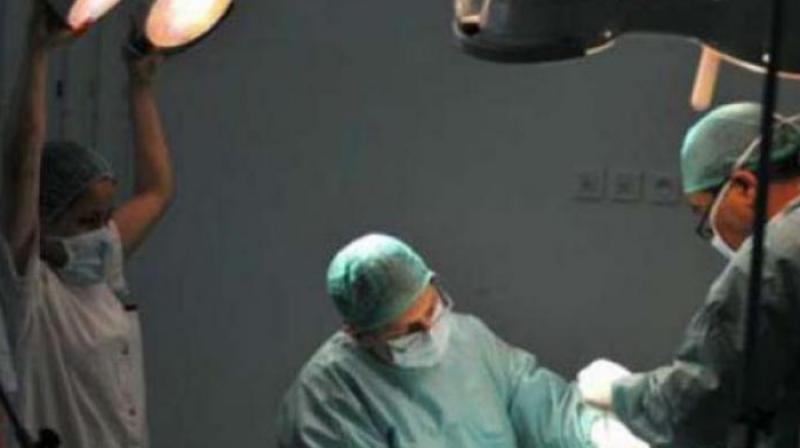Hyderabad: Doctors remove rare tumour from woman

Hyderabad: Doctors at a city hospital recently removed an intra-cardiac tumour from the left ventricle of a 25-year-old woman from Sangareddy district who had complained of extreme shortness of breath.
Doctors who performed the six-hour operation said it was an extremely rare case – in fact, only the second such recorded —of Rosai-Dorfman’s disease, itself a rare condition.
They also replaced the woman’s aortic valve with a mechanical valve and kept the woman under observation for six days. She is stable now, the doctors said. Rosai-Dorfman, named after two pathologists who discovered the condition, involves the overproduction of a type of white blood cell that then accumulates, mostly in the lymph nodes, but very rarely in the heart.
“The reason for overproduction of these cells is not known. Various causes are suspected — viral, bacterial, environmental and genetic causes. The disease is rare and usually affect the neck region, thyroid gland, pancreas, skin and upper respiratory tract. In the heart region, there was only one recorded case so far,” explained Dr Anand Agarwal, the senior surgeon who performed the surgery.
The team of cardiologists – including Dr Prakash Ajmera, Dr Kamal Kumar Chawla and Dr Mallikarjun – believe that the cells must have developed in the woman’s heart region over the last five-six years. Rosai-Dorfman usually occurs in the first ten years of life, and rarely in adults.
Rosai Dorfman’s
Rosai-Dorfman is a histiocytic disorder in which a type of white blood cell, called non-Langerhans sinus histiocyte, is overproduced. These cells accumulate in the lymph nodes and usually affect the neck region, but can also occur in other parts of the body and cause organ damage.
Symptoms
Main symptom of Rosai-Dorfman is pain and fever. Often, when the disease is not seen under X-Ray, it is only the continuous pain that signals that the disease is progressing. In very rare cases, the symptoms are breathlessness, headaches, night sweats, decreased sensation, difficulty in swallowing and speaking.

